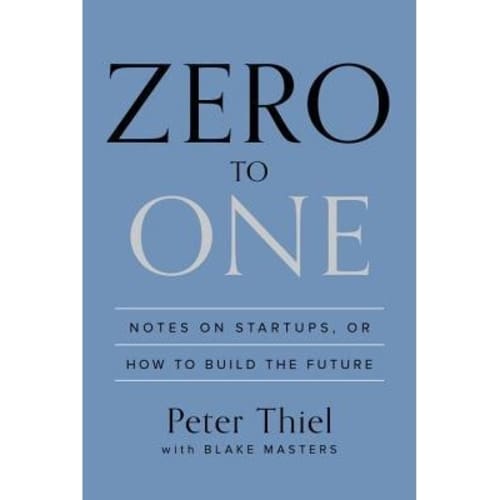Who knew entrepreneurs would become celebrities? Stories about startups are the focus of movies like The Social Network and television shows like HBO’s satirical comedy, Silicon Valley. Entrepreneurs like Elon Musk and the rest of the so-called “Paypal Mafia” now populate the popular imagination, and their companies are fables in themselves (for those of you keeping track at home, those companies includes Tesla, LinkedIn, YouTube, Yelp, and SpaceX, amongst others). Entrepreneurs are the new heroes.
At Hope College (Holland, MI) where I teach management and strategy, the number of students interested in entrepreneurship has shot up drastically over the last few years. The allure can be found at top universities and business schools as well. In 2013, eighteen percent of Harvard Business School graduates went into technology, higher than health-care, non-profit, government, and manufacturing combined. Of the Stanford Class of 2014 undergraduates who went directly into the workforce, seventeen percent went into computer science and technology, handily beating the number two option of strategy consulting, a typically financially luring alternative. Given its west coast location, perhaps we should not be overly surprised that 2,466 of Stanford 2014 grads stayed in the Bay Area with its technology focus, but these numbers are staggering when compared to some of the other traditional US magnets of talent, namely New York City for finance (129 grads), Washington DC for power and politics (85 grads), and Los Angeles for entertainment (141 grads). The cultural and commercial centre of influence is shifting.
If startups are the current craze, then the bible of the moment might be Peter Thiel’s new book, Zero to One. Thiel is a member of the aforementioned PayPal mafia and one of the earliest investors in Facebook. His character is featured in The Social Network when Zuckerberg finds Thiel as the source of his original seed investment. Thiel’s shadow can be seen in HBO’s series as well, with Peter Gregory, the quirky investor at the centre of the Silicon Valley show, being partly developed based off of Thiel’s persona.
Thiel’s book first began as a set of lectures, then turned into a blogged set of notes by his student turned co-author Blake Masters. The notes dropped like water into a start-up crazed desert. David Brooks of the New York Times quickly referenced Master’s notes in an op-ed applauding Thiel’s case against competition. Finance guru and author Nassim Taleb has already dubbed Thiel’s book a classic and The Atlantic‘s Derek Thompson called it one of the best business book he has ever read—in a genre that, to be fair, does not tend to overflow with literary giants.
Given all this hype then, what are we to make of this entrepreneurial moment and the book that so aptly captures this energy?
What is Valuable?
The book seems to have a shifting audience and message. At certain points, Thiel seems be working primarily to prevent enterprising young individuals from choosing jobs like banking and consulting that “merely” involve shifting around capital or working to drive corporate efficiency, respectively. In service of this end, Thiel warns individuals of the strong pull toward conformity and safety, and instead encourages us to ask questions like, “What important truth do few people agree with you on?”
At other points, the book pivots toward providing straight-forward advice for start-up leaders and their respective investors. In doing so, Thiel’s contrarian questions (like, “What valuable company is no one building?”) are posed to organizations rather than individuals. In this section, Thiel’s categorization and summary of the problems of ill-structured boards, risk-adverse venture capitalists, and entrepreneurs drawn to the wrong form of competition becomes a fascinating social scientific exploration of venture capital. For those more interested in the pragmatic, it results in an interesting set of how-to’s for investing and operating a business as well.
Thiel’s advice to entrepreneurs and investors might best be distilled down to three questions: What kind of work or business is valuable? Where and how might this value be identified? And through what mechanisms might this value best be created? To the second and third questions, Thiel offers a relatively straight-forward but creative set of arguments. He pushes entrepreneurs to consider contrarian questions in a world of lemming-like copying. He encourages the exploration of non-competitive spaces in the search for sustainable monopolies. And in brilliant take-downs of both Solyndra in Clean Tech and the DMV’s inability to serve with efficiency, he makes a compelling case for the benefit of small organizations over larger bureaucracies in that the former allows individuals to be more in touch with and accountable to the realities they create.
But on the initial question—what is valuable?—Thiel leaves me asking for more. As James K.A. Smith rightly argued in a recent review of Zero to One, Thiel offers a kind of theology of culture in the book, however hidden below the surface. It is a posture that should make the book compelling to Christians operating in the entrepreneurship space. But in his attempts to explain a move toward a better society, Zero to One remains unnecessarily fuzzy about how this new and improved world might look and the role of entrepreneurship in getting us there.
Which Future? Whose Value?
In an early episode of Silicon Valley, we see a fake ad for a company called Hooli, a kind of stand-in for Google in the parallel universe of the show. In this commercial, Hooli’s CEO preaches a kind of gospel of the Valley. Looking directly into the camera, he states, “Hooli is about people. Hooli is about innovative technology that makes a difference, transforming the world as we know it,” sounding eerily similar to something Google, Apple, or Uber might say about their value. The punch line comes right after as the camera scans over clips of this CEO mentoring small children in the third-world and cradling a vulnerable farm animal: Hooli, he tells us with a straight face, is “making the world a better place . . . through minimal message-oriented transfer layers . . .”
Come again?
I can only imagine Thiel rolling in laughter at this satirical critique of Bay Area utopianism. After all his own venture firm, Founder’s Fund, pushes hard against this ethos in their mission statement, even directly taking a shot at Twitter’s supposed societal value: “We wanted flying cars—instead we got 140 characters.” In both this statement and Zero to One, Thiel is right to suggest that what is valuable is not merely what the market says at any given moment, and that there are vast substantive differences in types of “progress.” He also guides us part of the way toward answering the question of value by getting us to ask contrarian questions about what we might believe and create that others cannot yet see as worthy. But when it comes to casting a specific vision on what this imagined future might actually look like, Thiel is decidedly quiet.
To appreciate the complexity of this problem and even our incredible potential for self-deception, imagine our author in his day job as investor. Yes, Peter Thiel is currently investing in a number of novel disruptive technologies—most notably around life extension and creative data analytics to address complex global problems. But let’s remember as well that this tongue-in-cheek critic of Twitter’s low aims was also also an early investor in Facebook. So how does Thiel’s Fund, a critic of 140 characters, justify this kind of investment choice?
Facebook developed ways to manage large numbers of connections in a computationally efficient way, create an effective developer ecosystem, and to make it pleasurable to administer your online relationships.
So Twitter is mocked for lacking boldness when compared to space travel, but Facebook is a pleasurable eco-system to administer online relationships? I raise this not to suggest that one social network is more value-creating than another, but rather to suggest that we need a vision of the good to adjudicate differences in value beyond novelty and financial return alone.
In Zero to One, Thiel is clearer about what distorts our understanding of value than in offering a constructive view of what this better world should look like. The closest that Thiel gets to providing of a concrete vision is in his focus on difference. “Doing something different is what’s truly good for society,” he writes the end of the book, without realizing how hollow this claim sounds next to his calls for extending human life, moving into space, and moving beyond more of the same.
My guess is that Thiel’s assessment of value cannot be distilled down to financial metrics or consideration of novelty alone. After all, Founders Fund invests in aerospace to find an extended frontier, biotechnology for drug development and longevity, advanced analytics for learning, and alternative energy to overcome constraints of natural resources, among other things. In his role as an investor, Thiel obviously sees the potential for major returns in these investments. That said, I suspect there is a vision and imagination behind these projects that remains implicit and just below the surface of Thiel’s treatise. Give Peter Thiel two different companies with similar projected return, and he is going to be more drawn to longevity than social networking, more likely to invest in space travel than the next pet food app.
When we consider the role of Silicon Valley in shaping our world, we need to know what counts as technological progress, what problems are worth addressing, and what might be considered movements toward the good, true, and beautiful. While I am not asking Thiel to offer a comprehensive vision of the good life, his book implies that Silicon Valley needs a comprehensive moral vision as much as they need entrepreneurial courage. Yes, Zero to One calls us toward novelty, but the book also encourages building valuable companies and pursuing truth yet uncovered. In asking these questions, Thiel is a romantic and a visionary, and yes, a kind of cultural theologian. But if he calls us to create something new, motivates us to move from zero to one, I can’t help but wanting to know whether all “ones” are created equal. I hope Thiel and those following in his footsteps might be even more explicit and articulate in identifying other metrics of value beyond financial return and novelty alone. Yes, let’s together move from zero to one, but let’s not fail to talk about what it should look like and where we must go.


